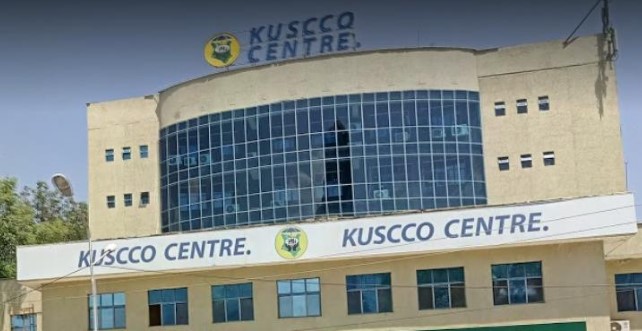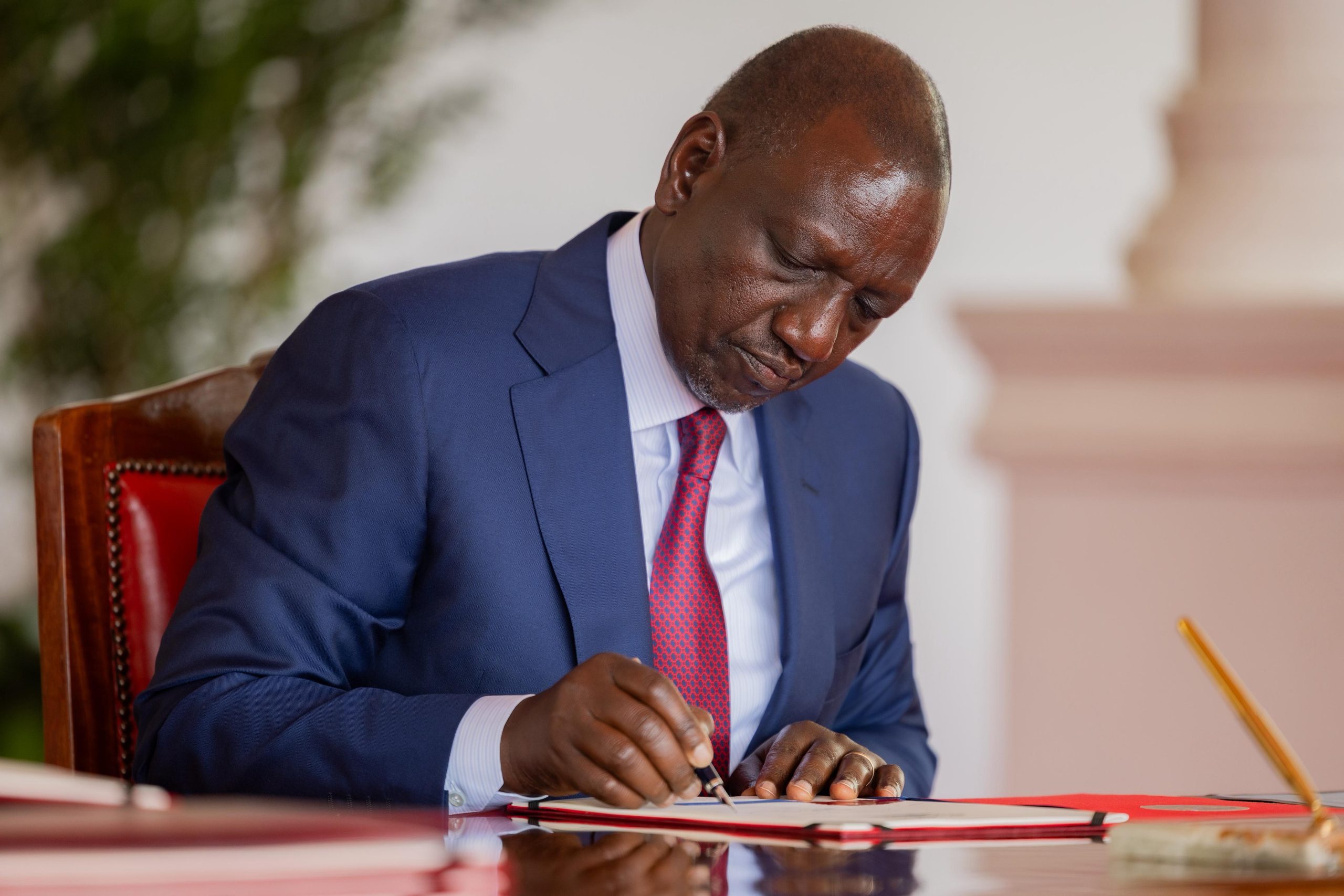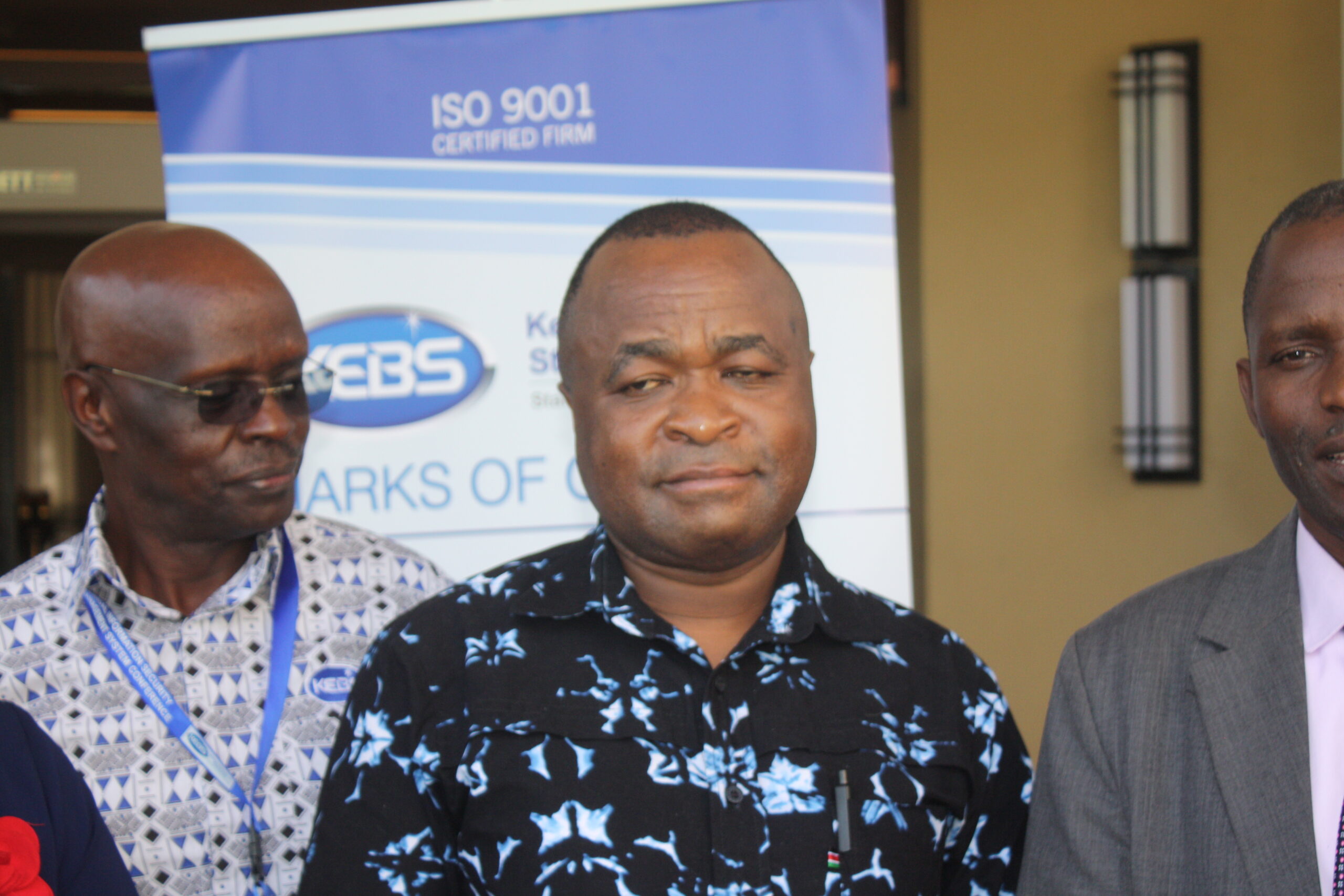A recent revelation that a dead auditor certified the financial statements and accounts of the now financially crippled Kenya Union of Savings and Credit Cooperative Society (KUSCCO) is raising questions on whether or not members of any Society should trust the opinion and audited accounts presented by these esteemed professionals.
It also raises the lid on suspicions that the books of KUSCCO were being cooked for years, until the perpetrators ran out of complicit individuals that were enablers in the theft schemes.
While there is ample evidence that KUSCCO has been technically insolvent for several years, its accounts continued to be certified by internal auditors, without external auditors raising any red flags.
Although auditors normally raise queries in management letters, it is still unclear what happens if the concerned top brass of the affected organization ignores these professional opinions.
In the case of KUSCCO, an internal auditor posthumously certified the accounting books of the Union, despite the fact that the umbrella body was in the red, all done in the eyes of external auditors.
ALSO READ:
According to the PricewaterhouseCoopers (PwC) forensic audit report, perpetrators of the KUSCCO heist included senior KUSCCO executives, internal auditors, rogue board members, and complicit external auditors.
“The fact that rogue KUSCCO directors and board members went for the signature of a dead auditor shows the extent of their desperation to cover their tracks. It also means that there were numerous fraudulent dealings that had been going on at the Union and so the introduction of a new auditor could have revealed the hideous financial transactions that we now suspect must have been going on for years,” said Tower Sacco Director John Gitundu.
Tower DT Sacco appears to have had a hunch about the goings-on at KUSCCO and hence liquidated their Ksh 101m in KUSCCO before the Union went down on its knees.
“It appears that while KUSCCO was not under SASRA, it picked on an audit firm that may have been rogue and not duly authorised to undertake such work. This could have been a loophole that created room for all manner of financial irregularities that were committed at KUSCCO,” said Dr. Richard Nyaanga, CEO Apstar DT SACCO, formerly, Ukulima SACCO.
ALSO READ:
According to SASRA regulations, a SACCO can only engage one auditor every three years, this arrangement subject to renewal annually at the AGM.
“A SACCO board that observes good corporate governance should be able to explain to members in the event that it terminates the contract of an audit firm or continues to retain its services,” said Mr. Nyaanga.
A forensic audit ordered by the state by PwC reveals that KUSCCO top brass forged a dead auditor’s signature to approve falsified financial records, exposing a well-plotted scheme to steal some Sh13.3 billion from the Union coffers.
“The issue of forging a signature of a deceased auditor is a case of malpractice that happens in all professions. This is why Kenya National Police Sacco has made a point to stick to the services of the top 4 audit firms, who have more sophisticated tools that give more information about the numbers and give us more value for money,” said Solomon Atsiaya, Kenya Police DT SACCO Chief Executive Officer.
He added that the fact that SACCOs change the audit firm or individuals doing the work every three years is to prevent a situation where these accountants are compromised.
Available figures indicate that due to irregular audit reports, KUSCCO slid into insolvency to the tune of KSh12.5 billion, with KSh24.8 billion in deposits belonging to some 247 SACCOs, now at risk of not being recovered.
ALSO READ:
SASRA urges Sacco to embrace modern technology and strict compliance for sustainable growth
Findings by PWC exposed other financial irregularities at KUSCCO, including manipulated financial records to hide losses, large-scale bribery involving top executives, unexplained bank withdrawals, contracts awarded to firms linked to top managers, and falsified profits to cover financial troubles.
It is not the first time that an auditing firm has been implicated in financial irregularities in corporate Kenya. A few years back, Uchumi Supermarket’s auditors, Ernst & Young (E&Y), were accused of covering up financial rot by potentially allowing the publication of untrue figures in Uchumi’s financial statements and information memorandum.
A forensic audit by KPMG revealed that Uchumi’s accounts for 2010-2014, prepared by E&Y, contained misleading information.
The Capital Markets Authority (CMA) put E&Y’s role in the matter under investigation, including whether they knowingly allowed the publication of inaccurate figures, particularly in the 2014 rights issue.
The CMA suspected that E&Y may have knowingly allowed the publication of false information in the information memorandum used for Uchumi’s 2014 rights issue, which raised a significant amount of money.
The CMA conducted an inquiry into E&Y’s role in the matter, including their potential contribution to the issuance of a discredited prospectus.
Any auditor found culpable in such matters faces potential enforcement actions, such as fines and being required to compensate investors who purchase shares based on the inaccurate information.
Auditor liability refers to the legal responsibility of an auditor for any damages or losses incurred by clients or third parties due to their professional negligence or misconduct. This liability can arise from errors or omissions in the audit process.
SACCOs in Kenya typically appoint external auditors from a list provided by the Sacco Societies Regulatory Authority (SASRA). The Board of Directors usually recommends the auditor, and the members vote to approve the appointment at the annual general meeting.
ALSO READ:
Sugar Belt Union pushes for more farmers’ representative slots in the decision making committee
SASRA maintains a list of authorized external auditors, which is updated annually. Saccos can only choose auditors from this approved list.
The Board of directors typically selects an auditor from the SASRA list and proposes their appointment to the members.
The appointment is then subject to approval by the members at the Annual General Meeting (AGM) or Annual Delegates Meeting (ADM). In some cases, the audit committee (if one exists within the Sacco) might be responsible for selecting the auditor from the SASRA list.
The external auditor must be independent of the Sacco’s management and board, ensuring objectivity in the audit process.
KUSCCO, a national cooperative, alongside others such as Coop Bank, CIC Insurance Group, and Cooperative Alliance of Kenya (CAK), was formed with the sole mandate of providing advocacy services to SACCOs on matters affecting the sector.
It played this role for many years, especially on matters touching on the legal and regulatory framework for SACCOs.
With time, KUSCCO diversified its activities to include financial services.
But greed crept in within the Union when it set up an unregulated lending platform and created several financial and investment products where SACCOs with surplus funds would invest while those in need of cash would borrow from this pool at competitive rates.
Among the worst hit was Amref, which became a member of KUSCCO in December 1995 by way of shareholding and to date has 3,296 shares worth Ksh 329,565 subscribed over some time.
For a long time, many SACCOs including Amref SACCO have invested surplus cash in KUSCCO’s special deposit scheme, where it has earned good returns that were distributed to members.
Towards the end of 2023, KUSCCO began experiencing governance and cash flow challenges that led to the removal of its senior management team.
In 2024, the CS for Cooperatives and MSMEs Development disbanded the entire board of KUSCCO and replaced it with an interim board.
ALSO READ:
Amref had at the time invested Ksh 90 million, which had earned Ksh 7 million in interest. A forensic audit by the government has revealed that the Union was grossly mismanaged and is now insolvent.
Kenpipe SACCO had Ksh 149,180,285 in fixed deposits with KUSCCO and Ksh 698,113.00 held under KUSCCO Jungu Kuu Savings. In the 2024 accounts, Kenpipe made a provision of Ksh 119,344,228 to recognize the loss.
Balozi SACCO has Ksh 437.55 million exposure in KUSCCO at the close of 2024. Interest from savings with KUSCCO was nil from Ksh 1.87 million in 2023.
Stima SACCO’s impairment (reduction in the recoverable value of an asset for 2024 is set at Ksh 108.0 million). Stima SACCO has downgraded the weighted average effective interest rates on short-term deposits attached to KUSCCO from 12% in 2023 to 0.00% in 2024.
The Law Society of Kenya SACCO lost Ksh 19.25 million from the KUSCCO debacle. The SACCO managed to pull out Ksh 42.18 million out of Ksh 61.44 million as soon as it emerged KUSCCO was running into headwinds.
Mhasibu Sacco took a Ksh 480.6 m loss on account of KUSCCO collapse, related to a fixed deposit that was to mature on 16th January 2024, but KUSCCO was unable to honour their withdrawal request.
The list of SACCOs that have lost cash in KUSCCO is long. The full extent of their losses could become apparent in the 2005 accounts, which will be published during the next AGM cycle that takes place between January and April 2026.
By Jackson Okoth
Get more stories from our website: Sacco Review.
For comments and clarifications, write to: Saccoreview@
Kindly follow us via our social media pages on Facebook: Sacco Review Newspaper for timely updates
Stay ahead of the pack! Grab the latest Sacco Review newspaper!



